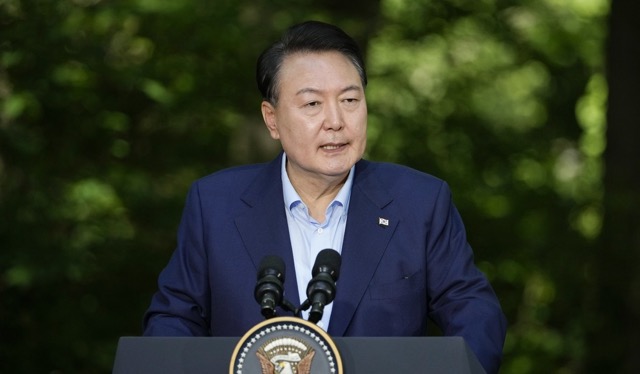In a dramatic turn of events in Seoul, South Korea, President Yoon Suk Yeol declared martial law in a late-night address, stating that the move was necessary to restore order and protect the nation from “anti-state forces.” However, the decision was met with immediate backlash from the opposition-controlled National Assembly, which swiftly acted to overturn the decree.
Despite the military guarding the assembly building, 195 lawmakers convened outside and voted unanimously to rescind Yoon’s martial law order, far surpassing the required 150 votes. National Assembly Speaker Woo Won-shik declared, “We will protect democracy with the people,” urging the military and police to withdraw from the assembly grounds. They complied shortly thereafter.
The South Korean military leadership, however, remains aligned with Yoon. A military spokesperson echoed Yoon’s accusations that the National Assembly was creating “social confusion” and justified the suspension of parliament. In his televised speech, Yoon accused the opposition Democratic Party of fostering disorder, stating, “The National Assembly has become a monster undermining liberal democracy, and the nation is in a precarious state, teetering on the edge of collapse.”
Promising swift action, Yoon assured the public, “We will eliminate the anti-state forces and restore the country to normalcy as quickly as possible.” He called on citizens to trust him and accept “some inconveniences” during this period.
The martial law decree bans “denying free democracy,” “spreading fake news,” and “manipulating public opinion.” It also prohibits strikes, rallies, and other activities deemed to incite chaos. Doctors, who had been striking for months over a dispute about medical school admissions, were ordered back to work under the law.
The announcement drew criticism from across the political spectrum. Han Dong-hoon, leader of Yoon’s own conservative People Power Party, called the martial law declaration “wrong” and pledged to “stop it with the people.” Opposition leader Lee Jae-myung, who narrowly lost to Yoon in the 2022 presidential election, denounced the move as “illegal and unconstitutional.”
Protesters have already taken to the streets, marking the first large-scale demonstrations in response to martial law since the 1980s. With public dissent rising and lawmakers opposing Yoon’s actions, calls for impeachment appear inevitable. The Democratic Party, which has aggressively pursued investigations into corruption and impeachments of government officials, is likely to target Yoon next.
The president’s political future now hangs in the balance, as his controversial decision to impose martial law has further escalated tensions in an already divided nation.
 Telegram is where we really talk. Don't miss out!
Telegram is where we really talk. Don't miss out!







